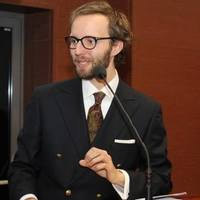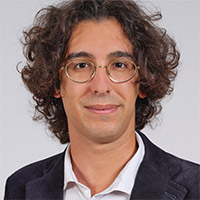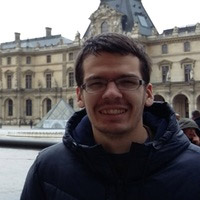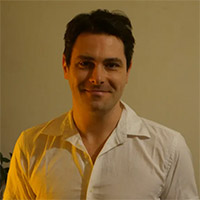Researchers can only aim to be as good as the colleagues that surrounds them! Let me introduce you to some early-career scholars.
And if you are among people collaborating with me and would like to feature in this section, drop me a line here.
Daniel Usma Gomez

Daniel Eduardo Usma Gómez is a PhD student at the University of Lorraine and the Archives Henri Poincaré (PReST), based in Nancy, France. His dissertation aims to reconstruct and examine Thomas Aquinas’ philosophy of Mathematics and its impact on general issues in contemporary philosophy of mathematics from both an epistemological and a metaphysical perspective.
His main interests are the mode of existence of mathematical objects, the doctrine of mathematical abstraction (formal abstraction), the cognitive role of the imagination in mathematical activity, specifically in the description of diagrams, and the metaphysical significance of the vocabulary used in scholastic accounts of those topics
Kamil Majcherek

Kamil has just defended a dissertation on Medieval Metaphysics of Artefacts 1250-1500 at the University of Toronto. His main interests lie in late medieval metaphysics and natural philosophy, as well as palaeography and textual editing, since his research draws extensively on manuscript sources. He also has a secondary interest in late scholasticism.
From July 2022, he will be a Junior Research Fellow at Trinity College, Cambridge, where his main new project will concern late medieval debates about the ontological status of numbers: whether numbers are entities distinct from numbered things, and if so, what they are and how they exist.
Davide Falessi

Davide is a PhD student in a joint programme between the University of Lucerne and the École Pratique des Hautes Études in Paris. He is interested in the relationship between logic and metaphysics and his doctoral research is dedicated to the several senses of being in late medieval philosophy within a broad project titled Senses of Being. The Medieval Reception of Aristotle’s doctrine starting from Metaphysics V 7.
One of his main interests is continuity and, more in detail, the opposition between a realist and a nominalist account of points in a continuum. Starting from that, his research is focused on the notion of infinity and on the role of logic, especially modal logic, for the explanation of the ontological status of the indivisible and the set-up of the structure of a continuous quantity.
Andrei Marinca

Andrei is an associate professor at Babeș-Bolyai University (Cluj, Romania). He recently defended his Phd thesis Debates on the Continuum in the Natural Philosophy of XIVth Century. His research interests focus on the history of medieval atomism, Arabic philosophy, and the history of medieval universities. Currently, he is leading the research project ATOMA (Atomism between Theology, Natural Philosophy and Logic in the Late Middle Ages), based at Babeș-Bolyai University in Cluj.
Sylvain Roudaut

Sylvain is a researcher at the CNRS-SPHERE working on history of science and philosophy in the Middle Ages. He is interested in the evolution of methods in the natural sciences during this period—in particular, how quantification techniques are applied to various objects previously foreign to mathematics—as well as the evolution of their object, namely matter and its properties. At the same time, he is also interested in how different computational tools can be exploited to study and represent the evolution of scientific concepts and theories over time.
And many to come…